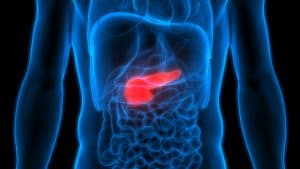
Catalyst’s lead candidate Firdapse falls short in Congenital Myasthenic Syndromes
pharmafile | October 31, 2019 | News story | Research and Development | Catalyst Pharmaceuticals, FDA, firdapse, pharma, trial failure
Catalyst Pharmaceuticals has made it known that its lead product Firdapse (Amifampridine Phosphate) fell short of its primary endpoint in the symptomatic treatment of genetically confirmed Congenital Myasthenic Syndromes (CMS) in patients over the age of two years old.
In what was the first trial of its kind in genetically confirmed CMS patients, individual patient improvements were observed but ultimately meet its goal of subject global impression – the study’s primary endpoint – or its secondary endpoint of muscle function measure, across all tested subtypes.
The news means the end of a study that, due to the rarity of the condition, took four years to recruit for. Firdapse is already approved for the treatment of Lambert-Eaton Myasthenic Syndrome (LEMS), and is currently being assessed in other CMS, neuromuscular and neurological diseases
“While we are disappointed that this trial did not reach its primary or secondary endpoints in the evaluated CMS patient subtypes, we are pleased with the new valuable clinical information that these results will provide to the medical and scientific communities as we work to develop FDA-approved treatment options for patients with this disease” said Patrick J McEnany, Chairman and Chief Executive Officer of Catalyst Pharmaceuticals. “We also remain committed to developing FDA-approved treatment options for other rare neuromuscular disorders.”
Dr Steven Miller, Chief Operating Officer and Chief Scientific Officer of Catalyst, added: “We have made significant progress in genetically testing patients who were unable to previously get diagnosed. Due to the small patient prevalence, the low number of patients tested, and heterogeneity of the disease with a wide range of variation in clinical presentation across its more than 50 subtypes, it was challenging to demonstrate a statistically significant benefit across multiple subtypes.”
The company will now meet with the FDA in light of the results to determine a path forward for securing regulatory approval for Firdapse.
Matt Fellows
Related Content

Roche’s Alecensa approved by FDA as lung cancer treatment
Roche has announced that the US Food and Drug Administration (FDA) has approved Alecensa (alectinib) …

GSK’s meningococcal vaccine candidate accepted for FDA review
GSK has announced that the US Food and Drug Administration (FDA) has accepted for review …

FDA grants ODD to Candel Therapeutics’ pancreatic cancer treatment
Candel Therapeutics has announced that the US Food and Drug Administration (FDA) has granted Orphan …







